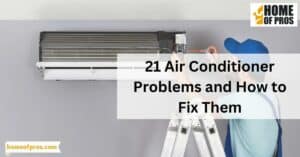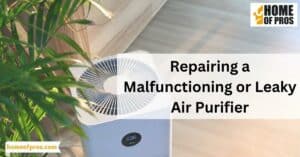Addressing eight common refrigerator issues, solutions include adjusting temperature settings, cleaning coils, replacing faulty parts, and regular maintenance. Resolving insufficient cooling, frost buildup, water leakage, unusual noises, ice maker malfunction, foul odors, freezer over-freezing, and water dispenser problems ensures optimal fridge performance.
Are you having issues with your refrigerator? From not cooling enough to excessive frost buildup, there are many common issues that can affect the performance of your appliance. Fortunately, most of these problems have solutions that you can easily address yourself or with the help of a professional technician.
In this blog article, we will discuss 8 common refrigerator issues and provide simple solutions to help get your fridge back up and running in no time. Read on for more information!
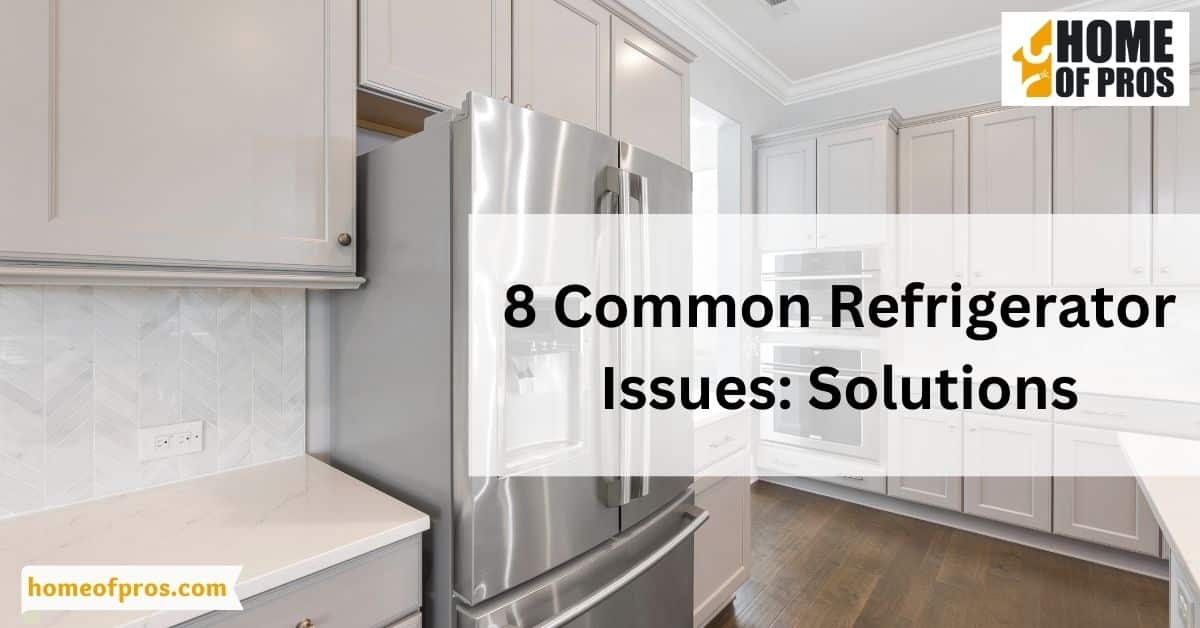
1. Refrigerator Not Cooling Enough
When a refrigerator is not cooling enough, it means that the temperature inside the fridge is not reaching the desired level to keep food and beverages properly chilled.
Common Causes: The accumulation of dust and debris on the condenser coils; or faulty door seals.
Solution: Clean the condenser coils at the back of the fridge to remove dust and debris. Verify that the door seals are intact and not allowing warm air to enter. If the issue persists, it may be a problem with the compressor or refrigerant levels, requiring professional repair.
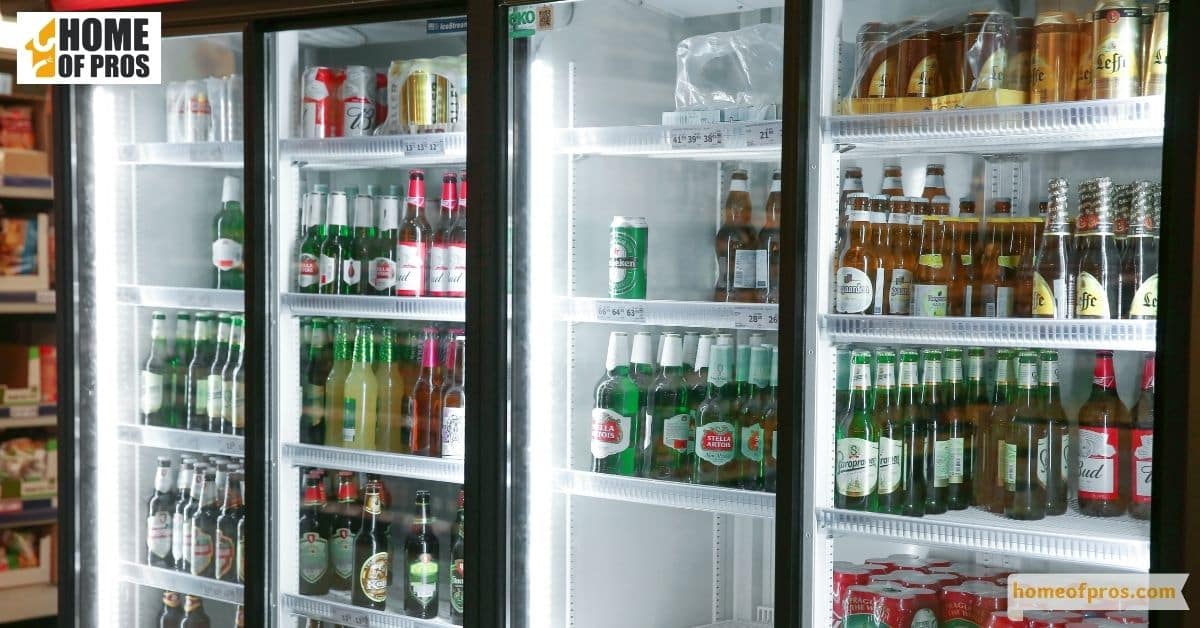
2. Refrigerator Too Cold
When a refrigerator becomes too cold, it can lead to various issues such as frozen food, excess ice buildup, and potential damage to the refrigerator components. This problem occurs when the refrigerator’s temperature drops below the desired level, making it challenging to maintain an optimal storage environment for perishable items.
Common Causes: Malfunctioning Thermostat
Solution: Adjust the temperature settings to a higher level. Check if the air vents are blocked by food items, impeding proper airflow. If the problem continues, the thermostat or temperature sensor might be faulty and need replacement.
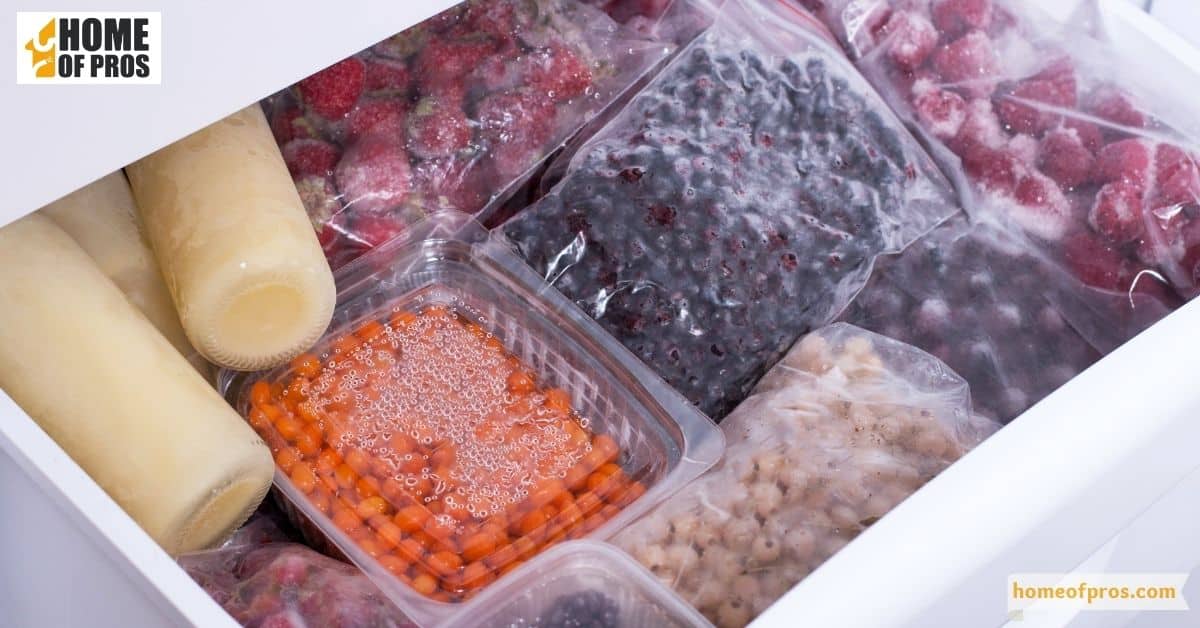
3. Excessive Frost Buildup in the Freezer
Excessive frost buildup in the freezer can be a frustrating and inconvenient issue for many people. It can cause difficulty in opening and closing the freezer door, reduce the available storage space, and affect the overall efficiency of the appliance.
Common Causes: Excessive frost buildup is a faulty or malfunctioning defrost system.
Solution: Defrost the freezer by turning off the refrigerator and allowing the ice to melt naturally. Clean the freezer and remove any obstructions or items blocking the vents. If the frost accumulation persists, the defrost timer, heater, or defrost thermostat may be malfunctioning and require professional attention.
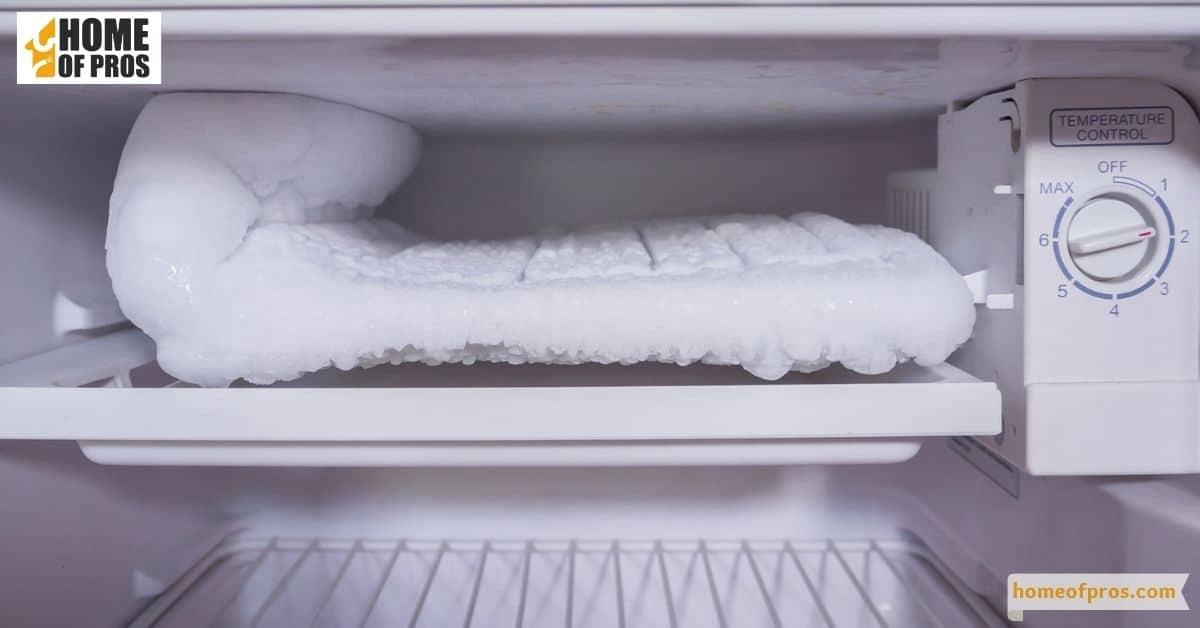
4. Water Leakage Inside or Outside the Refrigerator
Water leakage inside or outside the refrigerator can be a concerning issue that requires prompt attention. It can lead to water damage, mold growth, and potential damage to the refrigerator components.
Common Cause: A clogged or blocked defrost drain.
Solution: To resolve the issue, you can start by locating the defrost drain and ensuring it is clear of any obstructions. Gently clearing the drain with a pipe cleaner or a small tool can help remove any blockages.
Additionally, cleaning the drain pan beneath the refrigerator and ensuring it is properly positioned can prevent water from overflowing. If the problem persists, it is recommended to seek professional assistance to diagnose and repair any underlying issues with the defrost system or drain.
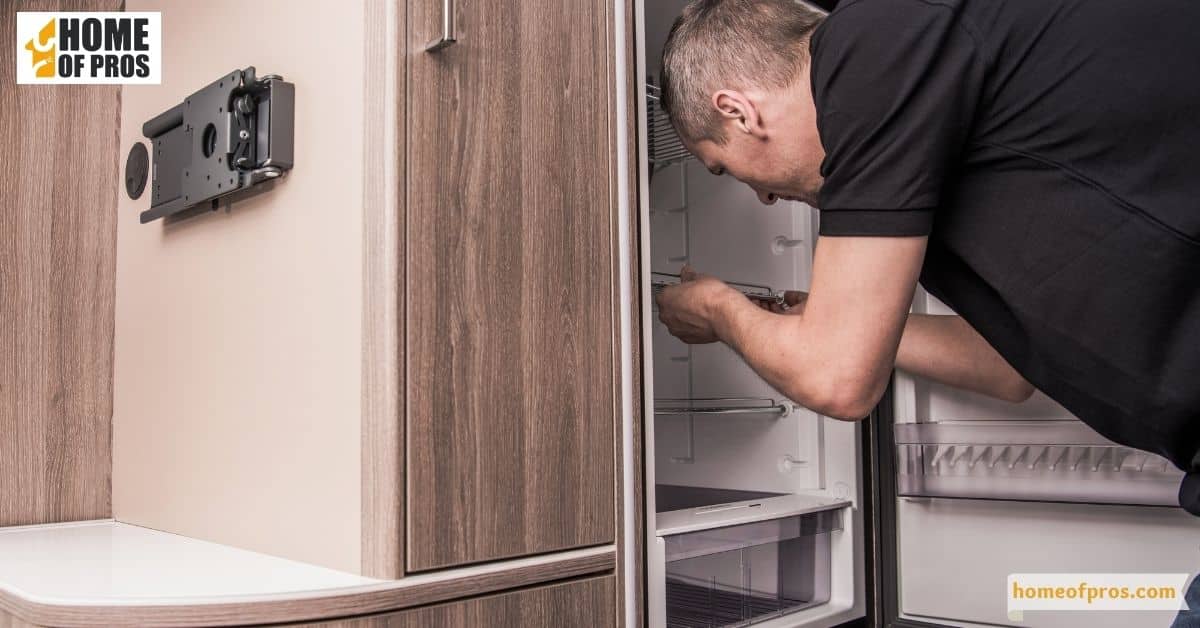
5. Unusual Noises Coming From the Refrigerator
Unusual noises coming from the refrigerator can be a cause for concern and may indicate a potential issue within the appliance. These noises can vary in type and intensity, ranging from humming and buzzing sounds to rattling, clicking, or grinding noises.
Common Cause: Malfunctioning or worn-out condenser or evaporator fan motor.
Solution: To address this issue, it is advisable to first identify the specific fan that is causing the noise. Access the fan compartment and inspect the fan blades for any obstructions, such as ice, debris, or loose parts.
Clear any blockages and tighten any loose screws or bolts. If the noise persists, the fan motor may need to be replaced by a professional technician to restore the smooth and quiet operation of the refrigerator.

6. Ice Maker Not Working
When the ice maker in a refrigerator is not working, it can be inconvenient, especially during the hot summer months or when hosting guests. The ice maker may fail to produce ice altogether or produce ice cubes in irregular shapes or sizes.
Common Cause: Faulty water inlet valve.
Solution: To resolve this issue, it is recommended to first check the water supply line leading to the refrigerator and ensure it is not kinked or blocked. Next, inspect the water inlet valve for any visible signs of damage or debris buildup.
If the valve is defective, it may need to be replaced by a professional technician to restore proper water flow to the ice maker and enable ice production.
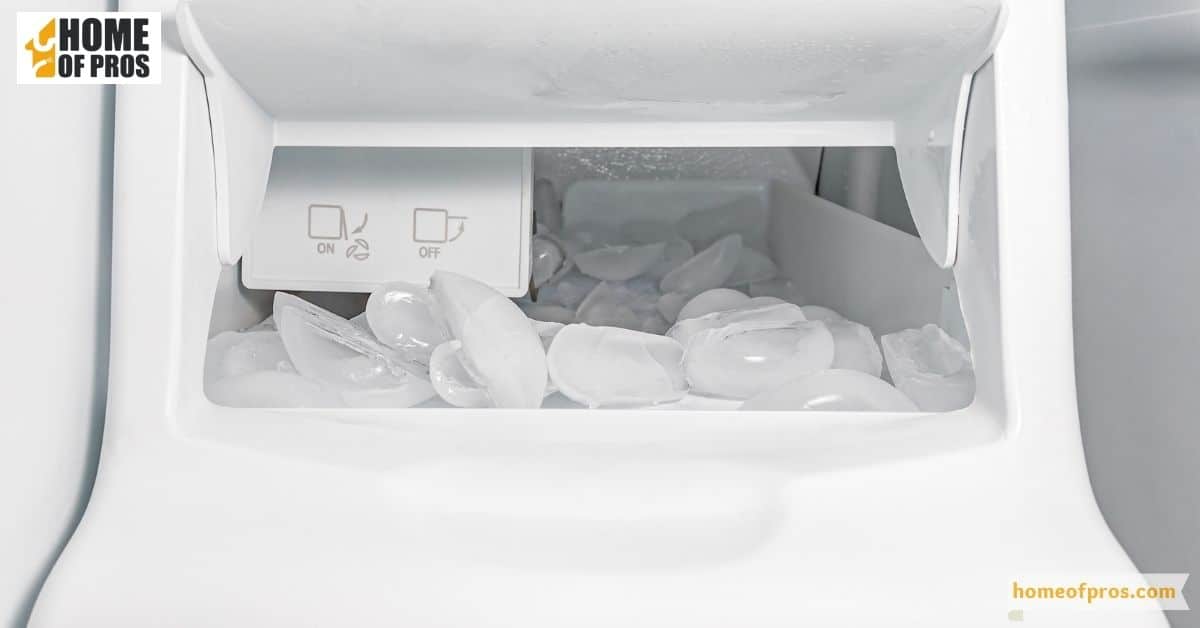
7. Foul Odors in the Refrigerator
Foul odors in the refrigerator can be unpleasant and affect the freshness of stored food items. These odors can arise from various sources and can permeate throughout the refrigerator, making it important to address them promptly.
Common Cause: Presence of spoiled or expired food items.
Solution: To eliminate foul odors, start by removing any spoiled or expired food items from the refrigerator. Thoroughly clean the interior of the fridge, including shelves, drawers, and walls, using a mixture of baking soda and water.
Baking soda helps absorb and neutralize odors effectively. Additionally, ensure that all food items are stored in airtight containers to prevent odors from spreading.

8. Water Dispenser Not Working
When the water dispenser in a refrigerator stops working, it can be frustrating, especially if you rely on it for convenient access to drinking water.
Common Cause: Clogged water filter.
Solution: Start by locating the water filter in the refrigerator and checking its condition. If the filter appears dirty or has not been replaced in a while, it may need to be replaced with a new one. Follow the manufacturer’s instructions for proper filter replacement.
After installing a new filter, flush the system by running a few cups of water through the dispenser to remove any air pockets or residual contaminants. This should restore proper water flow to the dispenser.
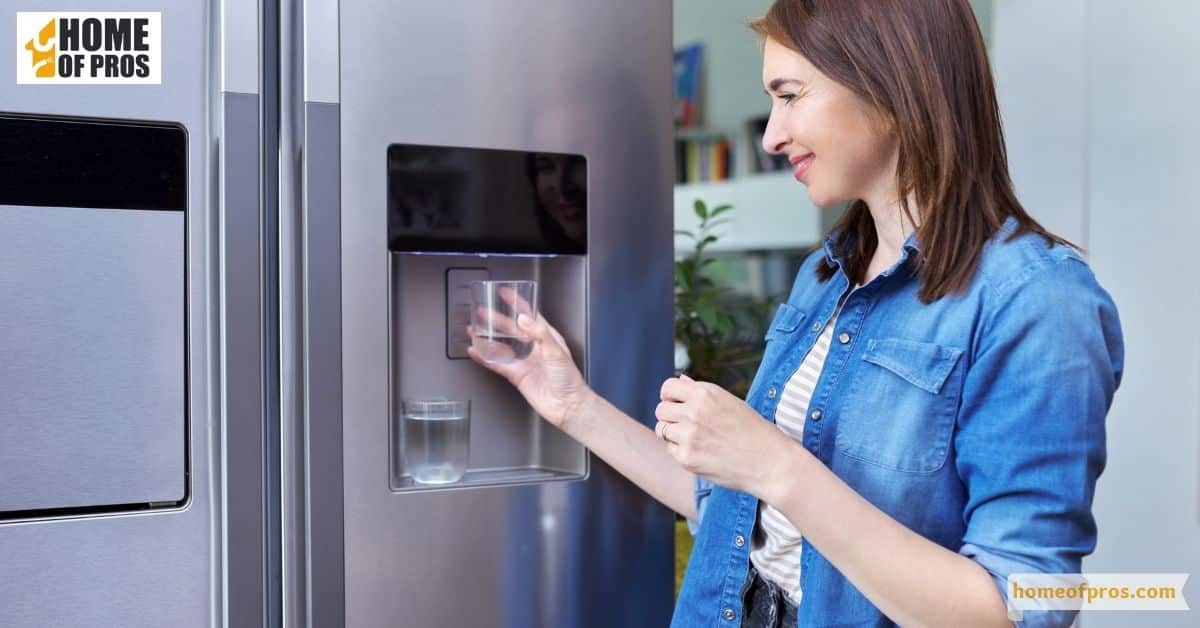
In conclusion
There are many issues that can arise with refrigerators and even the most common problems can be challenging to diagnose and repair. It is important to regularly maintain your refrigerator and take note of any unusual signs or behaviors, such as excessive frost buildup, water leakage, or loud noises.
Taking these preventive measures can help you avoid costly repairs and ensure your refrigerator is running efficiently. If you encounter any issues beyond what you can handle on your own, it is advisable to contact a professional technician for assistance.
With the right care and maintenance, you can extend the life of your refrigerator and ensure optimal performance.








